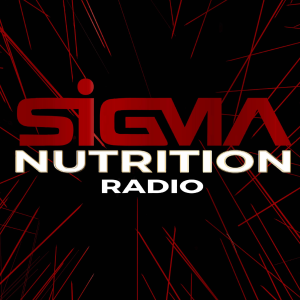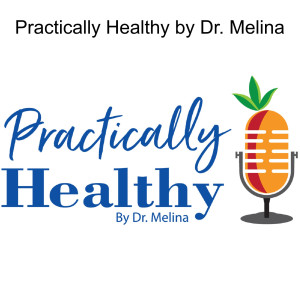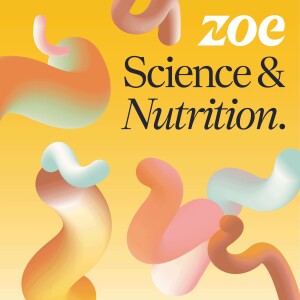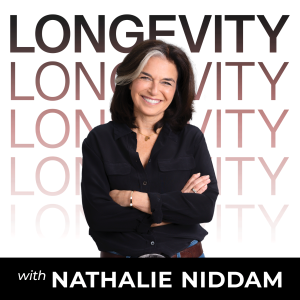
Links:
- Go to episode page
- Subscribe to Premium
- See recommended resources
- Receive the Sigma email newsletter
About This Episode:
The question of whether dietary fat quality causally affects atherosclerosis risk has been a subject of extensive research and debate within the field of nutrition and cardiovascular health.
Atherosclerosis, the build-up of plaque in arteries, is a key factor in the development of cardiovascular diseases, including heart attacks and strokes. Traditionally, dietary fat has been implicated in contributing to atherosclerosis, with a focus on reducing overall fat intake. However, recent studies have shifted the focus towards the quality of dietary fats rather than their quantity.
Not all fats are created equal, and researchers are now paying closer attention to the types of fats consumed in the diet. Saturated fats, commonly found in animal products and some tropical oils, have long been associated with increased cholesterol levels and atherosclerosis. On the other hand, unsaturated fats, including monounsaturated and polyunsaturated fats found in olive oil, nuts, and fish, have been linked to potential cardiovascular benefits. Research suggests that replacing saturated fats with unsaturated fats may have a positive impact on blood lipid profiles and reduce the risk of atherosclerosis.
Additionally, genetic factors and individual responses to different fats may play a role in how dietary fats impact atherosclerosis risk.
In this episode, Dr. Jacob Christensen discusses the research in this area and some conclusions about whether we can say dietary fat quality causally increases atherosclerotic cardiovascular disease (ASCVD) risk. This includes looking at the relationship between low-density lipoprotein (LDL) particles and ASCVD, the link between dietary fat quality and LDL particles, and then finally the relationship between dietary fat quality, LDL particles, and ASCVD.
About the Guest:
Jacob J. Christensen is a clinical dietitian and researcher at University of Oslo. His research interests include cardiovascular diseases, lipid metabolism, nutrition, genomics and data science.
More Episodes
#273: Bryan Chung, MD, PhD – Dealing with Science Overwhelm & Improving Your Relationship with Research
 2019-03-12
2019-03-12
#272: Barbora de Courten, PhD – Effect of Carnosine on Glucose Metabolism and Chronic Disease Risk
 2019-03-09
2019-03-09
#271: Prof. John Hawley – Circadian Metabolomics & Time-Restricted Feeding
 2019-03-04
2019-03-04
#270: Alexander Kolliari-Turner – Anabolic Steroids, Muscle Memory & Advances in Drug Testing
 2019-02-26
2019-02-26
#269: Lyndon Purcell & Jacob Schepis: Physiology, Hypertrophy & Discussions
 2019-02-21
2019-02-21
#268: Luke Leaman - Physiology, Nutrition From First Principles & Prioritising Health
 2019-02-18
2019-02-18
#267: Fiona Willer, AdvAPD - Health At Every Size, Non-Dieting & Weight-Neutral Approaches
 2019-02-11
2019-02-11
#266: Marty Kendall - Nutrient Optimiser, High-Satiety Diets & Carb/Fat Combinations
 2019-02-05
2019-02-05
#265: Lessons From Experts - Prediabetes, Autophagy, Relative Energy Deficiency and Carbohydrate Periodization
 2019-01-29
2019-01-29
#264: Prof. Michael Ristow – Longevity, Mitochondria & Free Radicals
 2019-01-22
2019-01-22
#263: Brenda Davy, PhD – Dietary Assessement Methods in Nutrition Research
 2019-01-15
2019-01-15
#262: Trevor Kashey, PhD – Thoughts on Science, Learning & Nutrition Practice
 2019-01-08
2019-01-08
#261: Ari Snaevarsson – Eating Disorder Recovery, Body Positivity & Intuitive Eating
 2019-01-01
2019-01-01
#260: Steve Taylor, RD - Sustainable Results, Human Behaviour & Dietary Approaches
 2018-12-27
2018-12-27
#259: Chad Kerksick, PhD - Energy Availability and Pre-Exercise Protein vs. Fasted Training
 2018-12-24
2018-12-24
SNR #258: Dan Garner – Building an Online Business as a Nutrition Coach
 2018-12-18
2018-12-18
SNR #257: Andrew Jagim, PhD – Pre-Workout Supplementation: Current Evidence & Recommendations
 2018-12-12
2018-12-12
SNR #256: Alex Leaf – Risks of High-Protein Diets?: Longevity, Gut Health & Microbiota
 2018-12-04
2018-12-04
SNR #255: Alan Flanagan – Public Health Nutrition & the Role of Epidemiology
 2018-11-27
2018-11-27
SNR 254: Nutrition for Health, Body Composition & Performance (My OPEX Podcast)
 2018-11-19
2018-11-19
Create your
podcast in
minutes
- Full-featured podcast site
- Unlimited storage and bandwidth
- Comprehensive podcast stats
- Distribute to Apple Podcasts, Spotify, and more
- Make money with your podcast
It is Free
You may also like

Practically Healthy by Dr. Melina


ZOE Science & Nutrition


LONGEVITY with Nathalie Niddam


Realfoodology


The Model Health Show

- Privacy Policy
- Cookie Policy
- Terms of Use
- Consent Preferences
- Copyright © 2015-2024 Podbean.com


 iOS
iOS Android
Android